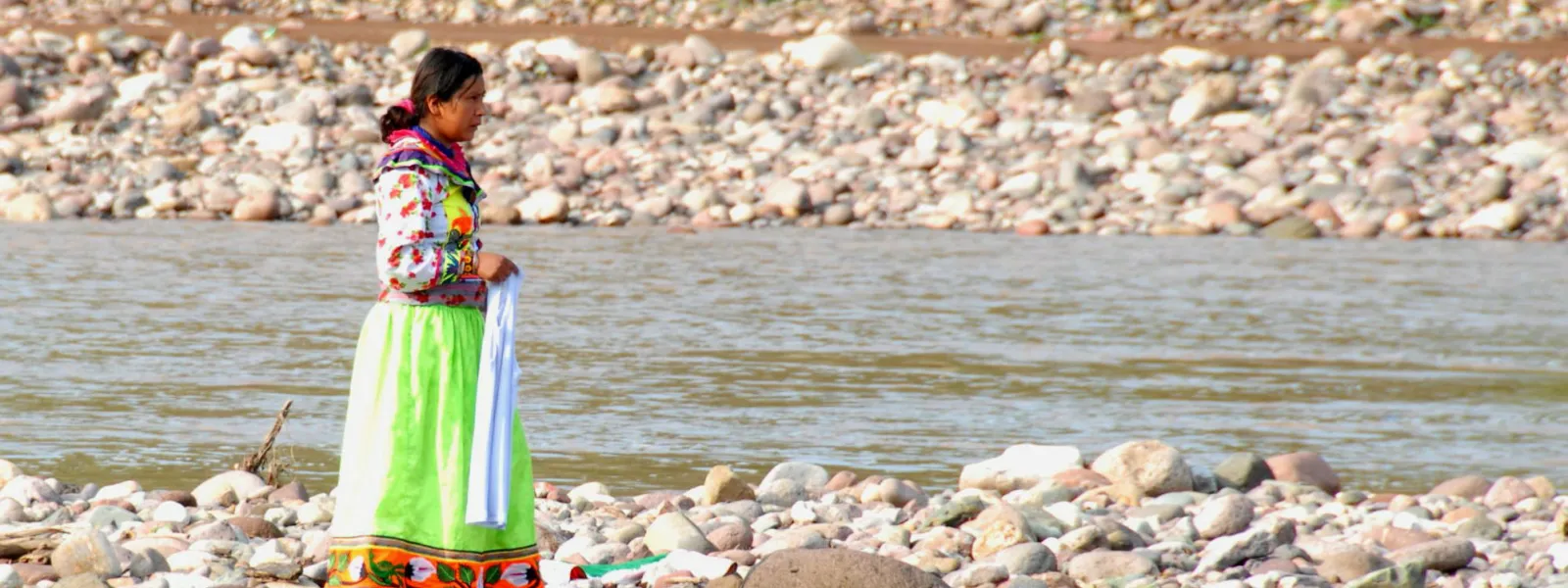
Indigenous groups ask Pope Francis to help stop Las Cruces Dam
In a letter delivered to Vatican representatives, indigenous and riverine communities affected by the construction of a dam on Río San Pedro Mezquital asked that the Pope intercede on their behalf before the Mexican government during his visit to the country. They explained that the hydroelectric project would cause serious harm to the environment and human rights.
Mexico City, Mexico. On the occasion of Pope Francis’ visit to Mexico, indigenous and riverine communities from Nayarit state wrote a letter asking the Pope to intercede on their behalf before the Mexican government, in hopes of putting a stop to the Las Cruces Dam project on Río San Pedro Mezquital. The project, they explain, puts at risk their culture and way of life, and also threatens Marismas Nacionales, one of the country’s most important wetlands.
The letter was delivered to the local headquarters of the Apostolic Nunciature, a diplomatic mission of the Vatican. It reads:
… We respectfully solicit that you, Your Holiness, during your visit to our country, intercede on our behalf before President Enrique Peña Nieto, so that his Government stops the human rights violations of all indigenous communities in the name of development, and that it abandon further advancement of the Las Cruces hydroelectric dam because of the human and environmental impacts it will cause.
Mexico’s Secretary of the Environment and Renewable Natural Resources (SEMARNAT) has granted environmental permits and water rights for the construction and operation of the dam.
“They did so without having guaranteed the right to prior consultation of the indigenous communities affected by the project, which include the Náyeri, Wixárica, Mexicanero and Tepehuano peoples,” explained Sandra Moguel, AIDA attorney. “SEMARNAT authorized the project with the condition that the Secretariat of Energy realize a process of consultation with the indigenous communities, which should have been done before issuing the authorizations.”
In their letter, the indigenous communities honor and celebrate Pope Francis’ encyclical, Laudato Sí, in which he recognizes the important contribution indigenous communities can make towards the promotion and protection of culture and natural resources.
“The Río San Pedro is not simply part of our lives, but also fundamental to our spirituality,” explained Julián López Cánare, member of the Náyeri Indigenous Council, who delivered the letter. “All of its territory, from its headwaters to its mouth, is a sacred space where we strengthen our identity and values.”
This river also feeds Marismas Nacionales, one of Mexico’s most important wetlands. The area is recognized as a Biosphere Reserve and a Wetland of International Importance under the Ramsar Convention, an intergovernmental treaty for the protection of wetland ecosystems.
Finally, the indigenous communities explained in their letter that the pressure put on them to agree to the project has escalated to include harassment and illegal detentions by the government. They also cite instances of acts simulating consultation, which would not be valid considering the project has already been authorized.
Citing the visions for the future they share with Pope Francis, the letter finished:
Your Holiness, hopeful in the power of your intercession, we part here with the passionate hope that your encyclical letter, Laudato Si’, inspires and propels profound changes in politics, practices, and beliefs of governments, businesses, civil society, and the mentality of our fellow man, with hopes of constructing a more just, more humane, and truly sustainable world.
